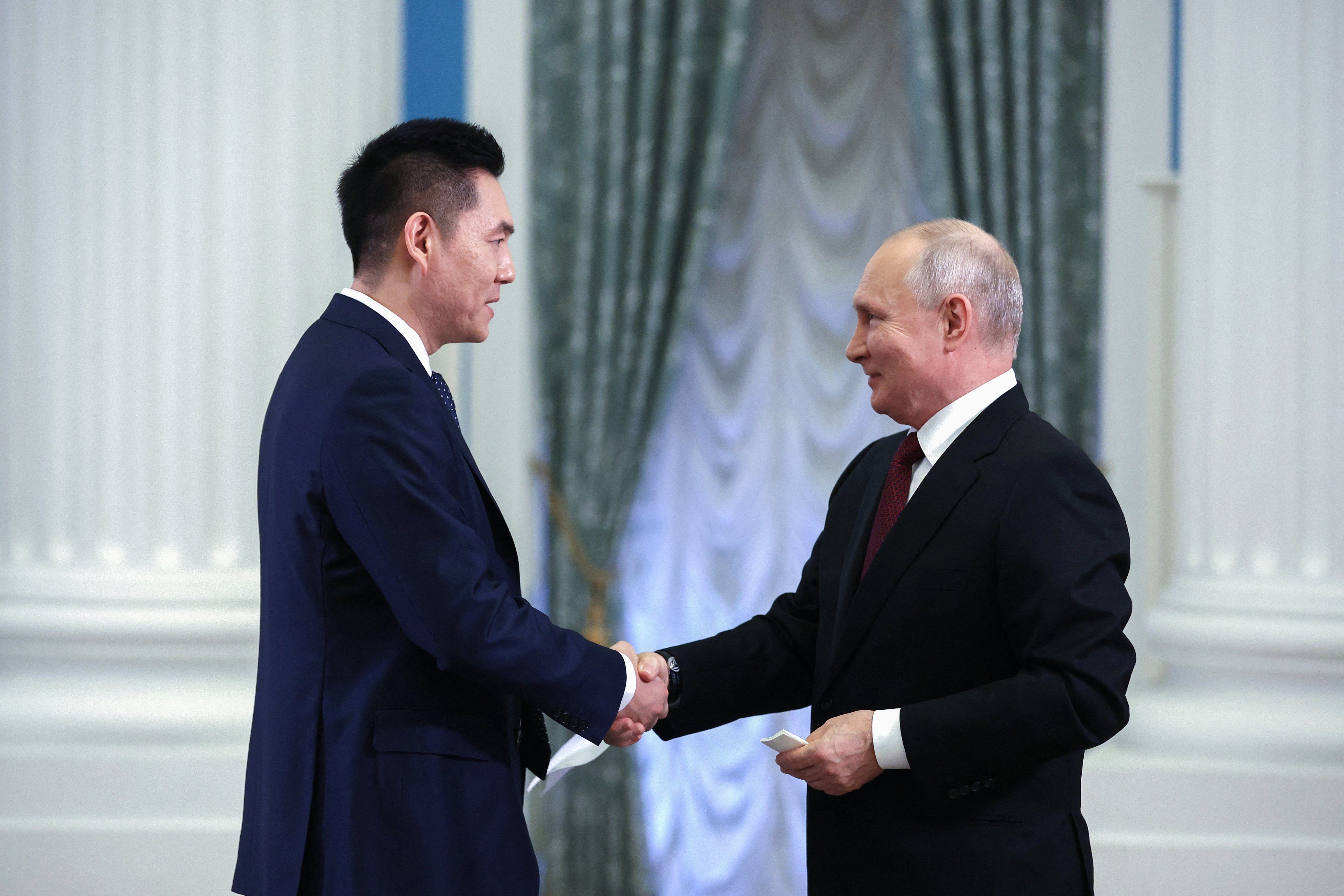President Vladimir Putin – on a rare venture outside Russia – is in Chinafor a forum marking the 10th anniversary of the Belt and Road Initiative. While Putin hopes to deepen the countries’ “no limits” partnership, what he really wants is Chinese President Xi Jinping’s promise to build the Power of Siberia 2, a massive pipeline project that would transport natural gas from western Siberia to China.
Russia’s Foreign Minister Sergei Lavrov, meanwhile, met with his Chinese counterpart, Wang Yi, on Monday in Beijing, where the two discussed resolving the war in Ukraine with “political and diplomatic methods” and the war between Israel and Hamas. They didn’t outline any concrete agreements, which may become a theme this week.
The Belt and Road Initiative, so promising a decade ago, is looking worse for wear. At its peak in 2018, Beijing was pumping nearly $60 billion a year into cargo ports, railways, power plants, and much more across Africa, Asia, and Latin America, and even attracting some interest from European economies.
But one global pandemic later, and the picture isn’t so pretty: Beijing is holding a ton of debt from developing nations that look like they may struggle to repay while China faces domestic debt problems. The political dividends in Europe have largely vanished as well, with the only G7 country to sign on to BRI, Italy, now looking for the exit.
As for Putin’s pipeline dream? The Russian leader wants it more than Xi, and China is hardly starved for energy these days. US and European sanctions on Russian oil exports have netted Chinese importers a cool $10 billion in savings thanks to steep discounts. Besides, publicly putting cash in Putin’s pocket would be hard for Xi to explain to US President Joe Biden should they meet as expected in San Francisco next month.
